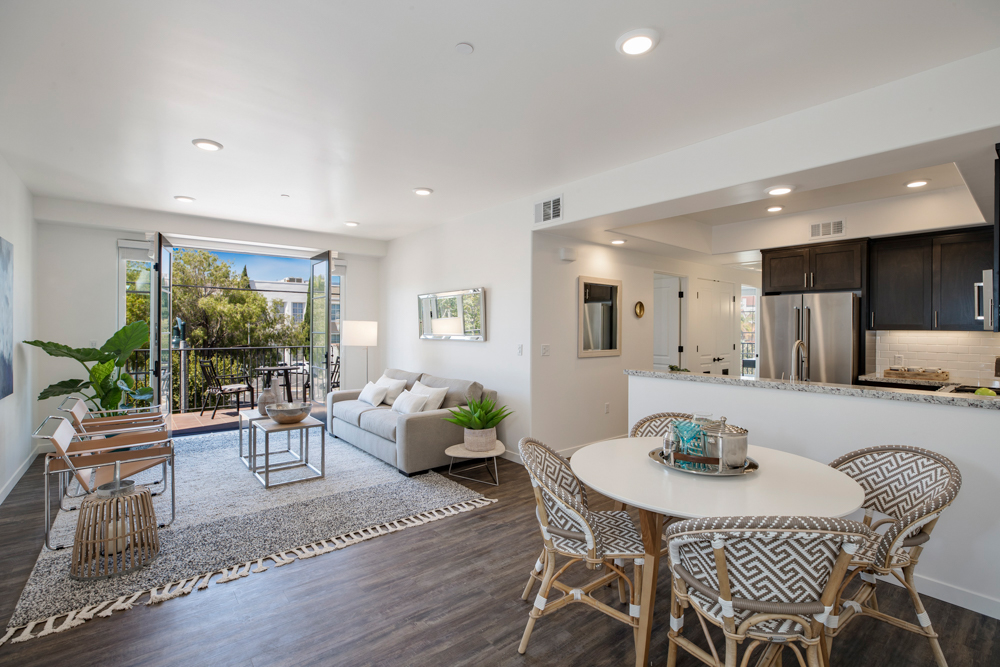New Arlington Village Rents Skip the ‘Missing Middle’
Studios Start at $1,850 a Month

The 33 apartments at Arlington Village ― the new housing development built on Chapala Street directly behind the Arlington Theatre ― are now for rent at prices that are likely to give Santa Barbara housing advocates serious whiplash. Studios start at $1,850 a month; one-bedroom units, $2,300; and two-bedrooms, $3,300.
For a studio tenant to afford these rates ― or to avoid spending more than 30 percent of their annual income on rent ― he or she would have to earn at least $72,000 a year. One-bedroom tenants would need to make $92,000, and two-bedroom dwellers, $132,000. According to a representative with Arlington Village, which is owned by the Corwin family, who operate the Metropolitan Theatres Corporation, the studios and one-bedrooms have all been leased, and only a handful of the larger units remain available.
Arlington Village is the latest project to come online under the city’s controversial AUD (Average Unit-size Density) program, which is meant to add incentives for the construction of workforce rental housing that targets couples making up to $127,000 a year. Critics of the program say its target demographic overlooks Santa Barbara’s “missing middle,” or those who make 80-120 percent of the Area Median Income (AMI). For a couple, that translates to anywhere from $64,000 to $76,000 a year. “All [Arlington Village units] are way out of reach for those households in the missing middle,” confirmed Rob Fredericks, executive director of the city’s Housing Authority.
According to new census data, the number of Santa Barbara households reporting incomes of $100,000 a year or less has been steadily decreasing since 2013, while the number of households earning more than $100,000 a year has increased significantly.
Since 2016, City Hall has deliberated over an adjustment to the AUD program that would require 10-15 percent of new rental units to be set at rates affordable to the missing middle. Developers have complained this would eat so much into their profits as to make the projects economically infeasible. A City Hall consultant, however, determined that new rentals under such guidelines would still “pencil out” and developers would still make a healthy return. The City Council voted last February to kick the item down to the Planning Commission for study.
Meanwhile, last month, the Commission voted 4 to 2 to approve a 52-unit, high-end rental housing project slated for Garden and Anapamu streets that will charge equally high rents. Commissioners Mike Jordan and Sheila Lodge argued the AUD development did not address the city’s need for workforce housing because the rents would be too expensive.



